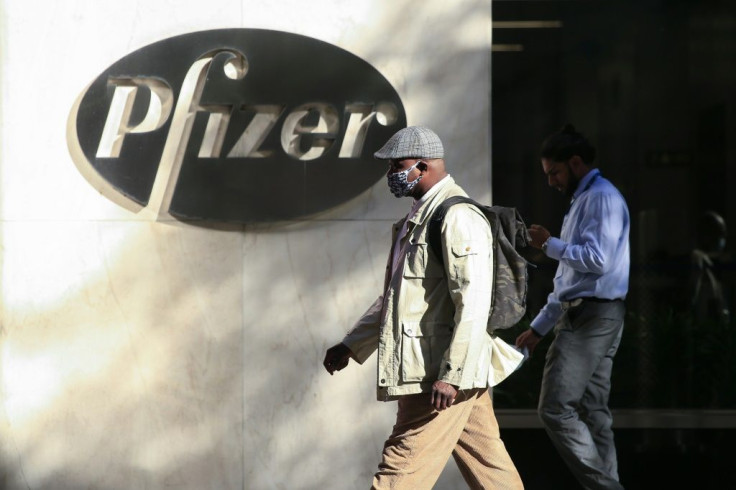Pfizer: The Firm Making Major Progress Toward Covid Vaccine
Pfizer, in partnership with German company BioNTech, announced this week major progress in its quest to release a vaccine against Covid-19.
Here are some key questions and answers about the US firm and its long history:
It was created by two cousins originally from Germany -- chemist Charles Pfizer and confectioner Charles Erhart -- in a red-brick building in Brooklyn, New York in 1849. Pfizer began with an almond-scented anti-parasitic drug.
It doubled its revenue by taking advantage of the demand for disinfectants and anti-pain medicine during the Civil War (1861-1865).
A manufacturer of both chemical products and drugs, Pfizer later developed techniques to mass manufacture citric acid, used particularly in soft drinks, then penicillin during World War II.
It sold its first drug under the Pfizer brand in 1950 -- the broad spectrum antibiotic Terramycin -- before expanding in the following years internationally and in the animal drugs sector.
Indeed. Viagra, the drug released in 1998 to treat impotence, is arguably the company's best-known product along with the anti-anxiety medicine Xanax and anti-cholesterol treatment Lipitor.
It offers remedies intended to treat cancer as well as cardiovascular and neurological diseases, both to individuals and to hospitals.
Among its current drugs earning over $1 billion a year are the anti-coagulant Eliquis, cancer treatments Ibrance and Xtandi, pneumococcal infection vaccine Prevnar 13/Prevenar 13, and those used in particular in the treatment of rheumatoid arthritis, Xeljanz and Enbrel.

Over the course of the last decade, Pfizer has consistently generated annual sales of more than $50 billion, though without a significant breakthrough involving a new miracle drug to further boost sales. Its profit last year was $16.3 billion.
The company spent some $8.7 billion in 2019 on research and development, but regularly acquires or approaches other firms to add to its portfolio.
In 2019, for example, it announced a merger of its non-patented medicines activity with the pharmaceutical group Mylan to create a global giant in the generics sector.
The company employs some 88,000 worldwide and sells its products in 125 countries.
It sold its first shares to the public in 1942 and is currently valued at $214 billion on Wall Street.
It is one of the world's leading pharmaceutical companies.
With the Covid-19 pandemic spreading, the company in mid-March formed a partnership with German firm BioNTech to develop a vaccine based on new genetic technology. The first tests began quickly in April.
With the product selected -- a two-dose vaccine given over the course of three weeks -- a large clinical trial began in July involving more than 40,000 participants.
Pfizer announced this week that the vaccine candidate was 90 percent effective in trials so far.
"I believe this is likely the most significant medical advance in the last 100 years," Pfizer CEO Albert Bourla told American network CNBC on Monday.
If trials continue successfully, Pfizer plans to request authorization with US drug agency the FDA by the end of the month.
It plans to produce 50 million doses by the end of the year and 1.3 billion in 2021.
© Copyright AFP 2024. All rights reserved.





















